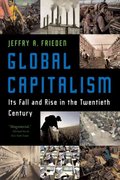Question
Question # 1 In section 9-4 of chapter 9, the topic of money demand is discussed. Irvin Fisher's quantity theory of money is brought up,
Question # 1 In section 9-4 of chapter 9, the topic of money demand is discussed. Irvin Fisher's quantity theory of money is brought up, the concept that the quantity of money is directly proportional to the price level. He arrived at this conclusion by assuming that the velocity of money and the number goods and services bought each year changed slowly over time. I have brought up this concept a few times already, I just didn't call it the quantity theory of money. Ultimately, the price level is determined by the number of currency units that are chasing the number of goods and services that have been produced within an economy. In the short-run, however, it might not be that straight forward. What were John Maynard Keynes' criticisms of Fisher's theory? What are the factors that affect the demand for money? Question # 2 An unstable money demand, basically a formal way of saying what you guys were saying in the discussion board, creates quite a problem for the FED. It hinders their ability to conduct monetary policy. In the conduct of monetary policy, should the central bank attempt to control the money supply or the interest rates? Note: think about how an unstable demand for money creates a challenge for the FED regardless of what path it chooses. The information needed to answer this question is in section 9-4 as well.
Step by Step Solution
There are 3 Steps involved in it
Step: 1

Get Instant Access to Expert-Tailored Solutions
See step-by-step solutions with expert insights and AI powered tools for academic success
Step: 2

Step: 3

Ace Your Homework with AI
Get the answers you need in no time with our AI-driven, step-by-step assistance
Get Started


